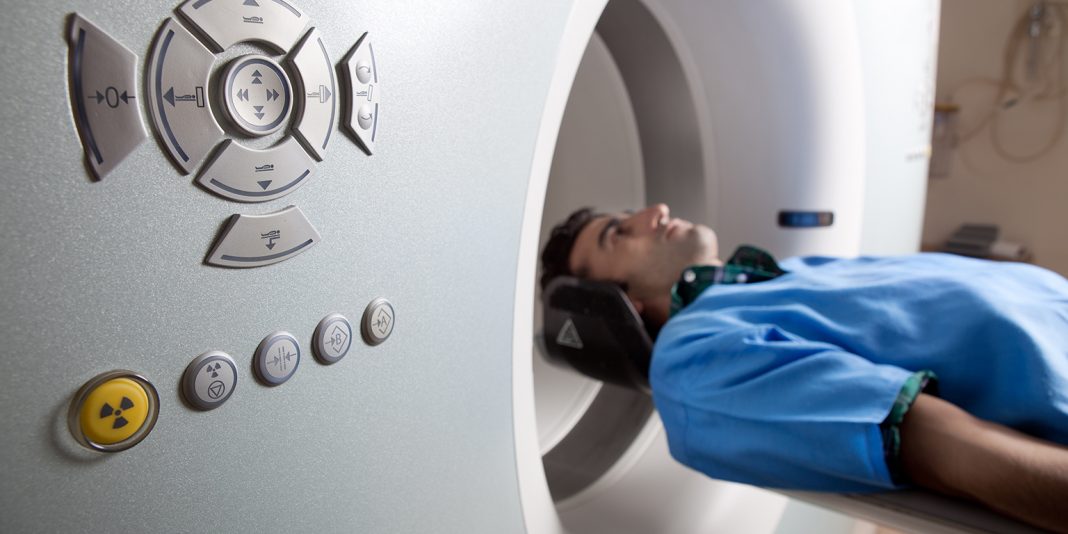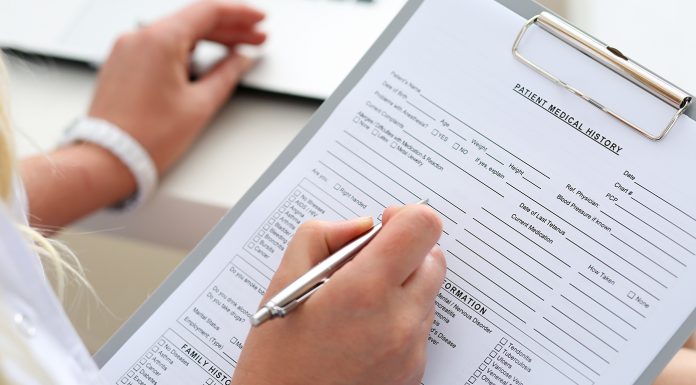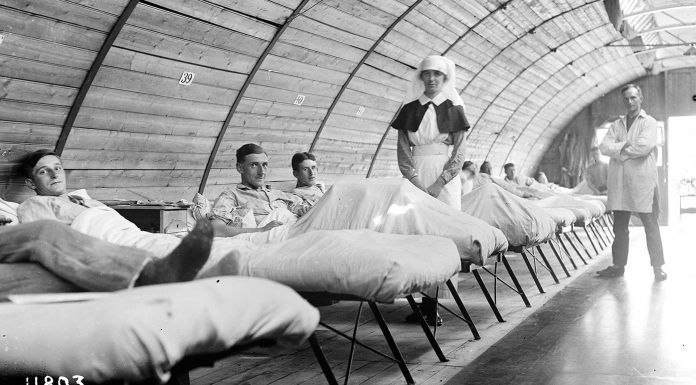There is usually no easy answer but FIONA CASSIE seeks some tips on how to sleep better from specialists Anna Clarkson and Alex Bartle.
For some, a good night’s sleep is something they look back on with nostalgia.
Crying babies, shift work, challenging teenagers, fluctuating hormones, work pressure, pain, late-night web surfing, airport noise, money worries, or simply ageing – they may never know for sure what tripped them from being a sleeper to an insomniac but lack of sleep is starting to impact on their work and their quality of life.
They’ve tried cutting down alcohol, got a new bed, and have a shelf full of herbal teas, but regular sleep still eludes them and they want to avoid (or escape) the trap of sleeping pills.
Auckland sleep psychologist Anna Clarkson says by the time people get to her, they have often been everywhere and tried everything.
Likewise Christchurch sleep doctor Alex Bartle says 90 per cent of the people he sees have been to their GP, tried all the herbal supplements, and surfed the net for answers but nothing has worked.
“Frankly what most people want is something to put them to sleep,” says Bartle.
What the sleep specialists provide is not supplements or sleeping pills but more information about the nature of sleep and a combination of cognitive behaviour therapies to improve sleep quality.
But I used to sleep fine…
Ageing can be a factor in insomnia.
“Basically, our sleep architecture changes as we age,” says Clarkson. “So as we age, we spend less time in deep sleep for a number of reasons.”
Bartle agrees, saying sleep unfortunately does become more fragmented, physiologically, as we age. Factors at play include having less melatonin (which helps sleep onset) and more aches and ailments to keep people awake.
People also expect to sleep straight through the night as they think they did when they were young.
”Everybody wakes in the night – even in your 20s, you are going to wake two or three times in the night,” points out Bartle. “But when people wake up in their 20s, they turn over and fall back to sleep and have no memory of having woken.”
“When you get older, those periods of wakefulness get slightly longer – so we start to recall or be aware that we were awake in the night and that starts to bother us as we think that’s not normal.”
He says recent research indicates it is actually our expectation to sleep through the night that’s abnormal, with our ancestors expecting a good night’s sleep to be divided into two bouts, with an hour or two awake in the middle of the night the norm.
A woman’s problem?
Then there are the hormonal changes as we age.
“Particularly for women there are changes to our endocrine system (hormonal system) and a lot of women can find that disruptive in terms of sleep,” says Clarkson. (Read online about insomnia and menopause at end of article).
Does that mean women are more likely to suffer insomnia?
Bartle says women complain more of insomnia than men, and getting up for babies and menopausal symptoms leads to fragmented sleep. But he suspects that the prevalence of insomnia may be just as high in men but many cover it up with drinking or “sucking it up” until the insomnia reaches crisis level.
He says a recent Finnish study looked at how worry and stress – the most common cause of insomnia – affects insomnia as people age.
“It seems for women that stress-related insomnia really starts to escalate and get worse in their mid-30s and it’s not until after they are 60 that it starts to decline.
“That’s later than for men, for whom the stress-related insomnia seems to decline after 55. Then again, I think that is partly because menopause kicks in around the 50s and it keeps that poor sleep ticking over, as it were.
“Worry and stress can cause insomnia but insomnia in return creates more stress,” says Clarkson.
“When we’re not sleeping well – functioning on three hours a night is just not adequate – it actually causes stress because we’re tired and irritable. We are much more vulnerable to depression and anxiety because we really need that sleep.”
A New Zealand study in 2005 suggested about 25 per cent of Kiwi adults experience chronic insomnia at some point in their lives, with many causes, and around 50 per cent of people have experienced difficulty sleeping.
“So it’s a very common problem,” says Clarkson.
What can you do?
With so many factors influencing sleep, Clarkson says she always starts with a thorough patient assessment.
How much of a role is stress playing? What medical factors are there? Is there undiagnosed depression or anxiety? Is there trauma in their history? Patients are also asked to keep a sleep diary to record their sleep patterns and lifestyle factors.
She then tailors an intervention to meet that individual’s needs. It is likely to include a combination of cognitive behavioural principle (Read more about CBT approaches to insomnia at “More on insomnia” at end of article.)
With insomnia often being a symptom of stress, Clarkson says that she also believes taking a stress management approach with her patients is “very, very important”.
“I think sleep is like a barometer. It reflects what else is going on in our lives. So if we address the stress in our lives, often our sleep improves.”
She says Richard Blonna’s “Five Rs of coping with stress” – reduce, relax, release, reorganise, and rethink – is a useful model and also provides a good framework for helping sleep as well (see tips sidebar at end of article).
While sleep is multi-faceted and there is not one cure that fixes all, there are some fundamentals that are helpful. Thanks to the Internet, most patients arrive already familiar with one CBT therapy – sleep hygiene education about environmental and lifestyle factors affecting sleep, like avoiding coffee and other stimulants too close to bedtime.
Both sleep specialists are clear that sleep hygiene is not enough on its own to make a difference to chronic insomnia but remains an important ingredient.
Clarkson says she always covers sleep hygiene fundamentals again as on occasion people miss a vital factor. Like a recent patient whose sleep diary revealed he drank lots of Pepsi before going to bed and wasn’t aware it contained caffeine.
Ban the iPad and turn off the computer
For a start, the sleep environment needs to be conducive to sleep. Is your room quiet enough and cool enough? Do you have animals that will disturb you? Are your pillow and bed comfortable enough?
Is your room dark enough? Light – along with regular bed and wake-up times – is important to keep our body’s natural sleep mechanisms in balance (see box).
“If you have light coming into your room at night, that reduces melatonin production and we need melatonin to get to sleep and stay asleep,” says Clarkson.
It is also important to avoid exposure to ‘blue light’ emitted from things like television, computers, laptops, iPads, and iPhones – which can also suppress melatonin production.
“Blue light is so effective at keeping people awake that actually in some countries truckies use blue light in their cabs because it suppresses melatonin and keeps them awake,” says Clarkson.
So avoid blue light a couple of hours before going to bed and keep blue-light-emitting devices out of the bedroom. And consider putting dimmer light bulbs in the bedroom
Likewise it is important for your circadian rhythms to have plenty of exposure to sunlight during the day. Take your sunglasses off in the morning and let light fall on your face.
Don’t dread bed
Another important tool in the sleep therapy toolbox is stimulation control. This means reprogramming the brain to associate the bed with sleep rather than lying awake and anxious about being awake.
The general rule is bed should only be for sleep and sex, which for purists also means no reading, but Clarkson says that should be a personal decision as for some people reading before hitting the pillow is a good form of relaxation.
Just as a ‘bath, jammies, story, and bed’ is good for settling children to sleep, a relaxing, consistent routine is also important for adults who are often wired by the end of the day.
So before you get between the sheets, make sure you have written your “to do” list for the next day so you can tell yourself “I’m on holiday until the morning” rather than stewing over things during the night. Once it’s lights out, if sleep eludes you or you can’t get back to sleep after waking in the night, then get out of bed.
As a rule of thumb you should stay awake in bed no longer than 15–20 minutes, says Bartle. He also advocates not having a clock in the bedroom, which he acknowledges can be a conundrum with people asking ‘how do I know how long I’ve been awake …’
“It’s just an estimate. What we don’t want you to be doing is lying in bed tossing and turning. That’s the number one thing.”
Even if you aren’t anxious, you should get up within half an hour as while you may feel calm, your brain is not associating bed with sleep.
Once up, Bartle says you should go to a warm, dimly lit place, have pen and paper handy, to write down anything that is worrying you, plus some light reading material such as a magazine.
“Not the latest novel you are getting into, not talkback, not the computer or television or anything that’s stimulating.”
He says while some say stay up until they are sleepy, he prefers people to head back to bed and try again after being up for around 15–20 minutes. If not asleep within about 15 minutes, get up and repeat the process.
Little blue pills or supplements?
By this stage many are probably asking ‘isn’t there any easier option.’ Isn’t there just a pill or supplement to take?
Bartle for one is pretty cynical about the effectiveness of most of the ‘natural’ pills or supplements that people try after trawling the internet.
One popular supplement to take is magnesium, but he says while one study found that sleep improved for about 30 per cent of people taking magnesium, the control group taking the placebo reported a very similar improvement.
“I’ve always quoted that about 30 per cent of anything you put in your mouth for sleep will have a placebo response,” says Bartle.
A recent study published late last year in the British Medical Journal indicates that sleeping pills, like zopiclone, also owe half their benefit purely to the placebo effect.
Bartle says herbal supplements, such as 5-HTP and L-Tryptophan, do not work, and melatonin supplements were also usually quite ineffective, particlarly for younger people, and timing of use was very important.
What is known to be about 90 per cent effective in sending people to sleep are those little blue pills, zopiclone. Bartle said zopiclone was a fantastic drug for short-term, isolated situations causing acute insomnia like a relationship break-up or exam stress. If used wisely it can be used to prevent the onset of chronic insomnia. However, if people go beyond a week or ten days, he says that while it doesn’t become addictive in the normal sense, people do become reliant on it to fall asleep. “It psychologically hooks you in.”
Don’t lose sleep over it
Often sleeping is matter of mind over matter – convincing your brain that insomnia is not worth losing sleep over.
The sleep specialists say people shouldn’t beat themselves up if not getting 7.5–8 hours sleep a night. Everybody’s sleeping needs are individual. If people are only sleeping six hours a night but feel fine during the day, then no problem – though you do need roughly six hours a night to consolidate memory.
“One of the things people tend to do is try to control their sleep. It can become a bit of an obsession,” says Clarkson. “But the harder we try, the more elusive it becomes.”
The struggle is that sleep is something that we cannot control.
“It is actually a process not of control but of letting go – learning to let go and just drift.”
She says that just by focusing on relaxation instead of sleep, you can take the pressure off those built-up expectations about sleep.
If you wake in the night, don’t panic or catastrophise and think ‘Oh no, not again! It’s going to be a terrible night’ as the stress and frustration can lead to you producing adrenalin or cortisol. “That really stops us from sleeping.”
“Actually relax about waking up. Relax about the fact you are not sleeping.”
As that elusive good night’s sleep might be yours once again.
More about insomnia
Insomnia definitions
Insomnia: difficulty falling asleep, staying asleep, or getting restorative sleep that impacts on your daytime functioning and quality of life.
Insomnia is said to be acute if it is for less than a month, persistent if it lasts from one month to six months, and chronic if it lasts more than six months.
Some sleeping tips
Lifestyle and environment:
• Have your bedroom cool and dark for sleeping.
• No ‘blue’ electronic light in room at night (i.e. clocks, stereo lights, iPad).
• Reduce caffeine/alcohol intake and avoid before bedtime.
• Get light exposure in the morning (boost melatonin).
Bed is for sleep:
• Bedroom only for sleeping and sex (no TV, smart phone, iPad etc.).
• Aim for regular bedtime and waking time.
• Establish regular relaxing bedtime routine .
• If can’t get to sleep or wake at night, get up after 15–20 minutes.
• Go to dimly lit, warm place, write down any worries, read a magazine for 20 minutes and try again.
Relaxation:
• Try a hot bath at night
• Abdominal breathing.
• Progressive muscle relaxation.
• Guided imagery.
• Meditation.
• Mindfulness.
Changing thoughts about sleep:
• Don’t beat yourself up if you are not getting 7.5–8 hours’ sleep a night. Everybody’s sleeping needs are individual.
• If you are only sleeping six hours a night and feel fine during the day, then no problem (but you do need roughly six hours a night to consolidate memory).
• It is normal to wake in the night. In times gone by, it was typical for people to sleep in two bouts and have a big break in the night.
• Once awake, switch the mental channel from worrying about sleep to your ideal holiday or what you would do if you won Lotto.
• Consider using mindfulness: really get in touch with your five senses and be in the moment rather than thinking about the past.
Shift work tips:
During night (to stay awake)
• Keep mobile.
• Have bright light (to suppress melatonin).
• Do more active things early in the night (difficult for nursing).
• Consider having a 15-minute nap during coffee break to keep you alert during the night.
• Have caffeine before shift but not during shift as it has a long half-life.
Helping sleep (post shift)
• Keep sunglasses on when driving home in morning.
• Keeping room dark (have blackout curtains).
• Turn phone off.
• Establish regular bedtime routine for whichever shift you are on.
• Eat regular light meals.
• Get regular exercise.
Stress management:
• Reduce: work on cutting out or reducing unnecessary stress in your life.
• Relax: use relaxation techniques to reduce the stress response – i.e. adrenalin that can keep you awake.
• Release: Use exercise, humour, etc. to release tension in your body.
• Reorganise: build resilience by instilling healthy habits like good diet, exercise, and sleep into your life.
• Rethink: change your thoughts about stressors in your life or learn to accept them.
*Based on Richard Blonna’s 5 Rs of Coping model
What’s natural about sleeping?
There are two natural body mechanisms that influence sleep:
Sleep/wake homeostasis tells our bodies after we’ve been awake for a long time and the need for restorative sleep is accumulating and so creates a drive that balances sleep and wakefulness.
Circadian rhythm or biological clock regulates the timing of periods of sleepiness and wakefulness throughout the day.
This clock responds to light and dark signals from the eye. Light in the morning signals it is time to be awake, to produce hormones like cortisol, and to delay the release of hormones like melatonin. When the eyes signal to the clock that it is dark, then melatonin (associated with sleep onset) is produced, so melatonin levels rise in the evening and stay elevated throughout the night, promoting sleep.
Regular bed times and waking times helps keep the sleep drive and circadian clock working smoothly.
Cognitive behaviour therapy (CBT) approaches to treating insomnia
Research studies indicate that CBT therapy (using combinations of the below therapies) is an effective treatment for chronic insomnia. The research also shows that all of them (with the exception of sleep hygiene and cognitive restructuring) can be effective standalone therapies for insomnia.
Stimulation Control Therapy
Training to re-associate the bed and bedroom with sleep and re-establish a consistent sleep-wake schedule.
Sleep Hygiene education
Becoming aware of lifestyle (including diet and exercise) and environmental factors that could hinder or help people sleep.
Relaxation training
Training people in techniques such as progressive muscle relaxation and abdominal breathing to help induce relaxation and reduce anxiety.
Cognitive therapy/restructuring
Identifying and changing unhelpful beliefs, attitudes, or misconceptions people may have about sleep, insomnia, and its consequences.
Sleep Restriction/Rescheduling Therapy
Restricting the time allowed in bed to equal the average amount of time the person actually spends sleeping (never less than 5.5 hours) and slowly increasing it as sleeping quality improves (which needs to be done under supervision of a sleep specialist and used only after other interventions fail).
Practice parameters for the psychological and behavioural treatment of insomnia: an update (2006), an American Academy of Sleep Medicine report. Cochrane Review’s italCognitive behavioural therapy for insomnia*** (2009). NB protocol stage only.
Menopause and Insomnia
According to one sleep expert many women with insomnia concerns in the late 30s and 40s are actually experiencing the transition to menopause known as perimenopause.
Sleep at this time can be impacted at this time by:
1. Hormonal changes – fluctuations in oestrogen and progesterone .
2. Hot flushes – sleep disturbed by waking up hot and sweating.
3. Depression/mood swings (hormonal changes may not be the only cause).
4. Coincidental social issues – stress of moving to new phase in life with kids, career, home, etc.
If you are finding symptoms of periomenopause are keeping you up or waking you up on an ongoing basis, see your GP or NP for advice.
Help yourself by keeping your room as cool as you can, skipping alcohol and tobacco, and keeping a cloth in bucket of ice near the bed so you can cool yourself off quickly.
Anna Clarkson says when your hormones are in a flux, it is even more important to address the other factors impacting on sleep that you have control over like eating a healthy diet, exercise, regular bedtime routines, reducing stress levels, and avoiding caffeine before bedtime.
*Largely drawn from an Ask the Expert article by Joyce Walsleben RN, PhD (head of behavioural sleep medicine at New York University) found on the National Sleep Foundation website: www.sleepfoundation.org























